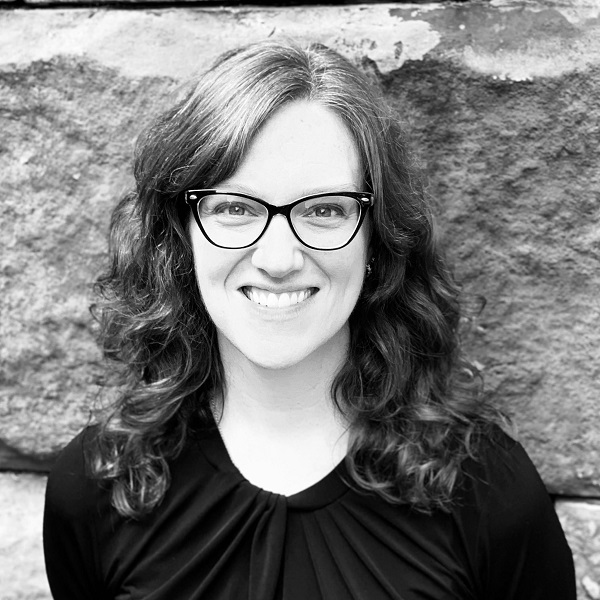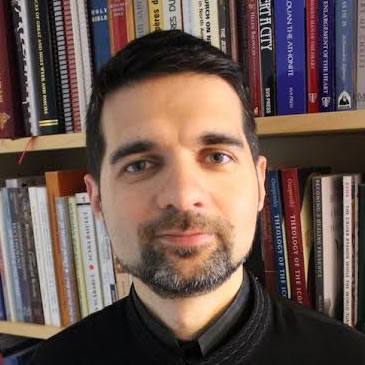Welcome back to The Wounded Healer podcast. So glad to have you, and as per usual, we welcome your emails and your comments and any ideas you have about particular topics you’d like us to address.
This week I’d like to share an essay I wrote when I was doing my Doctor of Ministry course, and the content seemed particularly relevant to our times. It’s about the question of bad things happening to good people, and especially in light of this past year, of the pandemic and COVID and so much collective grief. It seemed more important than ever to kind of return to our center, return to our understanding of ourselves as Christians that see life and see all that happens to us in light of Christ. So with that, I present to you my essay.
Why do bad things happen to good people? Why do good things happen to bad people? We hear these questions a lot, and we wonder how to make meaning of this. Do we deserve the good things, the bad things? Where is God in all of this? If we do good things and live a decent life, not hurting anyone, it seems like we should have some guarantee that life should be good, but a quick glance around shows that this is not the case. We all know the stories: the COVID stories we see on the news; our sweet neighbor who goes to Mass every day had a stroke and is in the hospital alone; your boss is a complete jerk who disrespects people at every turn, yet he gets promotions and accolades while you get nothing; your friend’s young wife is dying of cancer and they have a six-month-old baby; and so on and so on.
And after a while, it’s too much to bear, bad things happening to good people, and good people suffering all the time. Some people respond by rationalizing these questions from a rigid religious perspective. There’s this idea that God controls literally everything, from whom you marry to your job offers and your daily experiences. It’s like God is a micromanager. God helps you find your keys and grants you that parking spot you got at the supermarket. It’s related to the old “everything happens for a reason” line that people love to say to reassure themselves. “If I had been standing a foot to the left, that tree would have fallen right on me, and I would have died”—“everything happens for a reason! #blessed” Well, that’s good for you, but what about the guy it did fall on? What was the reason for that? Was that guy bad? Are you good? Was he good? What does that even mean? It makes you want to give up.
Perhaps more appealing is the idea that God is not involved at all, and we are the authors of our own destiny. You’ve probably heard of best-sellers like The Secret, with its law of attraction. Simply put, the law attraction states that if you put out positive energy into the universe, you will receive it back; if you put out negative energy, you will receive it back. It’s like your mind is an existential magnet. If you manifest your vision, you deserve all the good you get.
That sounds really appealing until something bad happens. What’s the reason? What about the wonderful person who manifests positive energy, yet gets cancer? Did she deserve it? Is she to blame? These ways of thinking are at best internally inconsistent, and at worst incredibly hurtful. If you have a tragedy and someone responds with, “Well, everything happens for a reason,” or “You must not have manifested enough positive energy,” you know it feels like a straight punch to the gut, and you have full permission to reject these responses.
The good news is there is a better way to face the fact that seemingly bad things do happen to seemingly good people. As Orthodox Christians, reductive responses and cheery slogans do not resonate with the rich theology of the Church. We don’t have this idea that God is a creepy puppeteer, orchestrating everything. God is not a cosmic babysitter or a petty micromanager. If he were, I wouldn’t want to believe in him either. And we’re not just sending and receiving energy into the cosmos like rechargeable batteries; it doesn’t work that way.
So we go back to an important promise: God is good. Everyone and everything God created is good. Everyone. Yes, even the people who seem bad. We are all made in God’s image, and this God created us to be free. Real love doesn’t force anyone to do anything. We can do whatever we want, but, as humans, we tend to do things in a way that prioritize our own pride, our own needs, in selfish ways. This allows for the force of evil, which is a twisting of the good, to take hold in people. This is what it means to live in a fallen world, that the second humanity had a chance to do something selfish, they did: cue Adam, Eve, and the apple. It took them about one hot second to mess with the freedom God gave them.
With this freedom came sin and death and suffering, all inherited, in a sense, from our ancestors. With this freedom comes a world of struggle and tragedy. Suffering comes as a result of this inheritance, but that’s not the end of the story. God responds to suffering in the Person of Jesus, who was real, who lived and saw everything that was going on. Jesus walked and talked and knew what it was to be human. He responded to the suffering he encountered with compassion and clarity. He calmly turned things upside-down. Instead of condemning the adulterous woman, he called the crowd to examine their own failures. He touched the supposedly unclean. He welcomed the noisy children—which my son likes to remind me all the time. He taught that every suffering person is our neighbor. Jesus loved the poor and ate meals with sinners. Every human experience, every tragedy, every joy and grief are known to Jesus, fully human, fully God, and without sin.
It can seem like the end of everything when a tragedy happens to someone we love. We ask: Why? We ask: Do I deserve this? These are good questions, and Jesus himself asked questions like this as he approached his own death. Again, he gets it, because he was fully human. He faced the pain of suffering, betrayal, and death head-on with compassion and forgiveness and love. Life is not just about doing good works or having an impressive faith so nothing bad happens to you. It is not about judging others or making assumptions about another person’s “energy.” It’s about a path of constant repentance and holiness and prayer, that seeks peace and kindness to ourselves and others. It’s about approaching suffering with gentleness and introspection, not as if we deserve it or don’t deserve it. It’s not about good people and bad people and good things and bad things. It’s about always trying to seek the only truly good thing, aligning ourselves with the heart of God, the love of God in us and around us. It’s a daily choice, a choice that God gives us—Lord, have mercy!
Well, then, you say, why does God need us to choose it? If God is so powerful, then why doesn’t God just do something? Well, God has already done everything. God has done everything in the Person of Jesus. And even Jesus was not immune to tragic feelings. He cried with compassion for his friend Lazarus who died. He showed us so tangibly what God is like. We can do the things that he did.
When a tragedy happens, we hear that wonderful quote of Mister Rogers, telling us to “Look for the helpers.” Mr. Rogers was a minister, you know, a Presbyterian minister, and his faith was quietly woven throughout his work. He said, “Look for the helpers.” The helpers are choosing love, kindness, compassion. This is where we see God when bad things happen. When we look for the helpers, we see that God is not distant; God is not gone. God’s love is alive among us. In the moments when we don’t see any helpers, then perhaps the helper is already close by. Perhaps we are the helpers, the ones called to love someone in need.
The ultimate fear, that life has no meaning and tragedy is unavoidable and meaningless, is conquered by a love that fills and surrounds everything that exists. That’s what I mean when I say God has done everything. He is never far away.
Now, of course, sometimes we still grieve, we still fear, we still shake our fists at the sky. We don’t just magically kick back in God’s glory and act perfectly. Life can be incredibly sad and overwhelming and heartbreaking. I spend hours with people in the midst of traumatic loss. All this stuff is honestly a mystery. We don’t know why, but faith helps us abide and be brave. Faith gives us the how: that’s how we navigate all of this.
Faith turns to God in the shock and the sadness and the heartbreak. Faith gives thanks for the helpers, and it empowers us to help, even just in small ways. The grief we feel is a cue in our hearts: This is not right, that death cannot be the end. Grief is borne out of love, and this love cannot be overcome. And, honestly, sometimes there are no words; sometimes silence is the most loving response.
On the cross with his last breath, Jesus said, “It is finished,” and was silent. “It is finished” doesn’t mean it is over; it is done. “It is finished” means it is complete. This was something that Fr. Tom emphasized in his amazing talk called “The Word of the Cross.” Even the final tragedy, death, was conquered by the love that never ends. God does everything that can possibly be done. It’s God’s complete way of saying, “My children, I love you, and I’m here with you.”
The question “Why do bad things happen to good people?” isn’t really the question we should keep asking. Instead, we must bravely ask: How can I be a helper? We must say, “God is good, and life is messy, and God has redeemed it all.” We must say, “Lord, have mercy,” over and over. We say, “Help us understand. Help us love.”
Does everything happen for a reason? Yes, but it’s not the reason you think. It’s not because you deserve one thing and someone else deserves something else. The reason is that everything in life—loss, joy, grief, gratitude, everything—is a chance to pray and a chance to love. It’s a chance to seek the helper, to be the helper, and to pray and cry and give thanks. Helping others, we witness true goodness, and we share this goodness with the world that so desperately needs it.
So with that, thank you for listening to The Wounded Healer, and thank you for being part of this conversation of what it means to be God’s helper and to care for those that we come across, whether as professional caregivers or for those in our families. Since today is the Sunday of the Publican and the Pharisee, as we approach Lent, I thought I could read the kontakion for today.
Let us flee the proud speaking of the Pharisee, and learn the humility of the publican. And with groaning let us cry unto the Savior: Be merciful to us, for you alone are ready to forgive!
Thank you so much.

 Sarah Byrne-Martelli
Sarah Byrne-Martelli
 Fr. Adrian Budica
Fr. Adrian Budica